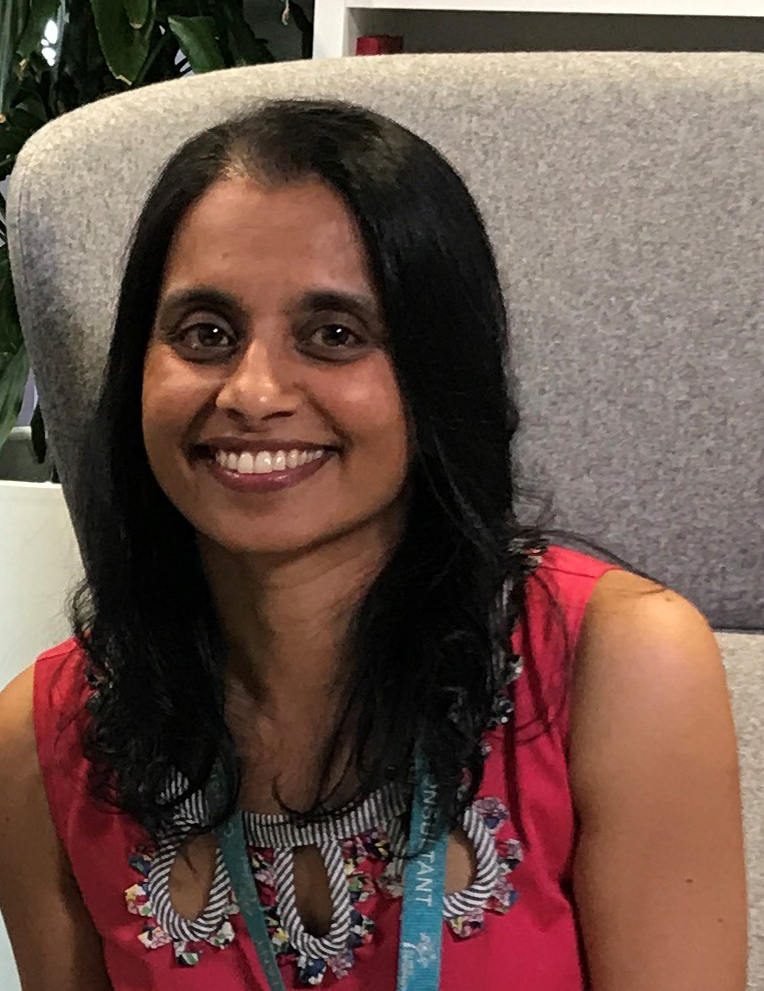The promise of cancer genomics to individualize medical care is something which medical oncologist Jean Abraham already exemplifies in her practice. As genomic oncology accelerates, she says researchers will need to bring patients into the discussion early on and prioritize the research questions that matter most.

From the start of her career, with her first degree in pharmacology, Jean Abraham has been interested in how different people responded to the same cancer treatment. Personalized medicine was coming to the fore and Abraham wanted to understand the differences between her patients.
“I was always interested in the fact that you can give two people, with apparently the same condition, the same drug and get completely different outcomes and completely different side effect profiles,” she says.
A consulting medical oncologist at the University of Cambridge and Addenbrookes Hospital, Cambridge, Dr Abraham now specializes in clinical genomics for breast cancer. She is actively involved in clinical trials and integrates whole genome sequencing into her clinical care to study how genomics can affect drug response or toxicity. A person’s inherited genome can influence their risk of cancer and response to treatment, she explains, “then you have the cancer genome as well, which adds another level of complexity.”
Since cancer genomes can now be interrogated deeper and faster than ever before, the promise of personalized medicine is being put to the test. For Abraham, that means delivering sequencing results to the patient and their treating clinician in a meaningful time frame so the results can be used to inform clinical care decisions and tailor treatment to the individual.
“We gave ourselves a time frame of 12 weeks: 12 weeks from taking the biopsy to the patient actually having the results in their hand,” Abraham says of the ambitious personalized breast cancer medicine program, which she co-leads with Professor of Cancer Medicine Carlos Caldas, a fellow ICGC contributor. “In fact, most of our patients have their result within 6 weeks and in particular urgent cases, it has been done in days.”
The program is making no concessions and is open to patients with any subtype of breast cancer at any stage, offering whole genome sequencing to patients “as they walk through the door”. It aims to profile between 2250 and 3000 patients as it expands to include multiple sites in the UK. The genomic data collected will be shared via the ICGC data platform, the portal where researchers and clinicians can access an unparalleled amount of genomic data produced through standardized and uniform analyses built on a foundation of shared knowledge.
Dr Abraham says that by openly sharing data, information and clinical experience at the appropriate time “everybody wins, most especially the patients.”
“Ten years ago, the cost alone would have been prohibitive and we simply wouldn't have had the knowledge or the bioinformatics skill to even tackle something like this,” she continues. Sharing lessons learned and expertise gained through the program will be just as important as it has been in the past decade of genomic research.
In that time, genomic sequencing has redefined breast cancer, which is no longer labelled as one disease but as a range of molecular subtypes. And now, case by case, genomic sequencing is changing clinical care – but not always in the way which patients expect.
“Most people take that to mean that we may change their treatment. But actually, changing clinical management can be something like finding a germline heritable mutation that affects not just the patient, but the whole family.”
Abraham describes one of her patients, a woman in her late 60’s, who at her age would not have had standard genetic testing for her breast cancer but when screened, the results showed she carried a heritable mutation. “She had a high risk of not just breast cancer, but also colorectal cancer and her whole family was then screened,” she explains.
Similarly, precision oncology in breast cancer has progressed to identifying less aggressive subtypes that don’t need much treatment, or any treatment at all, on top of matching patients to the right therapy based on their molecular profile. The ICGC, now focused on answering pivotal questions from clinical practice, will provide more nuanced genomic analyses of this kind, ultimately leading to an understanding of how to better use current treatments for other cancer types.
Abraham, a leader of the next generation of cancer care, stresses the importance of involving patients to help them understand these complexities.
“Patients are agreeing to letting us look at their whole genome so we have to do this hand in hand with them because this requires quite complex discussion sometimes,” she says. “Bringing the patients on board and helping them to understand [the sequencing process and potential implications] from the outset is really key.”
Abraham also acknowledges that there is still a way to go to fulfil the promise of precision oncology. Her vision is one of integrated consultancy. She says only by combining genomic information with other types of data including medical imaging, immune profiling and histopathology can we get the full picture for cancer patients.
“For true precision medicine we are going to have to bring together data sources other than just genomics to get a fuller understanding of what the patient’s cancer is doing at any given point in their cancer journey.”
Clare Watson